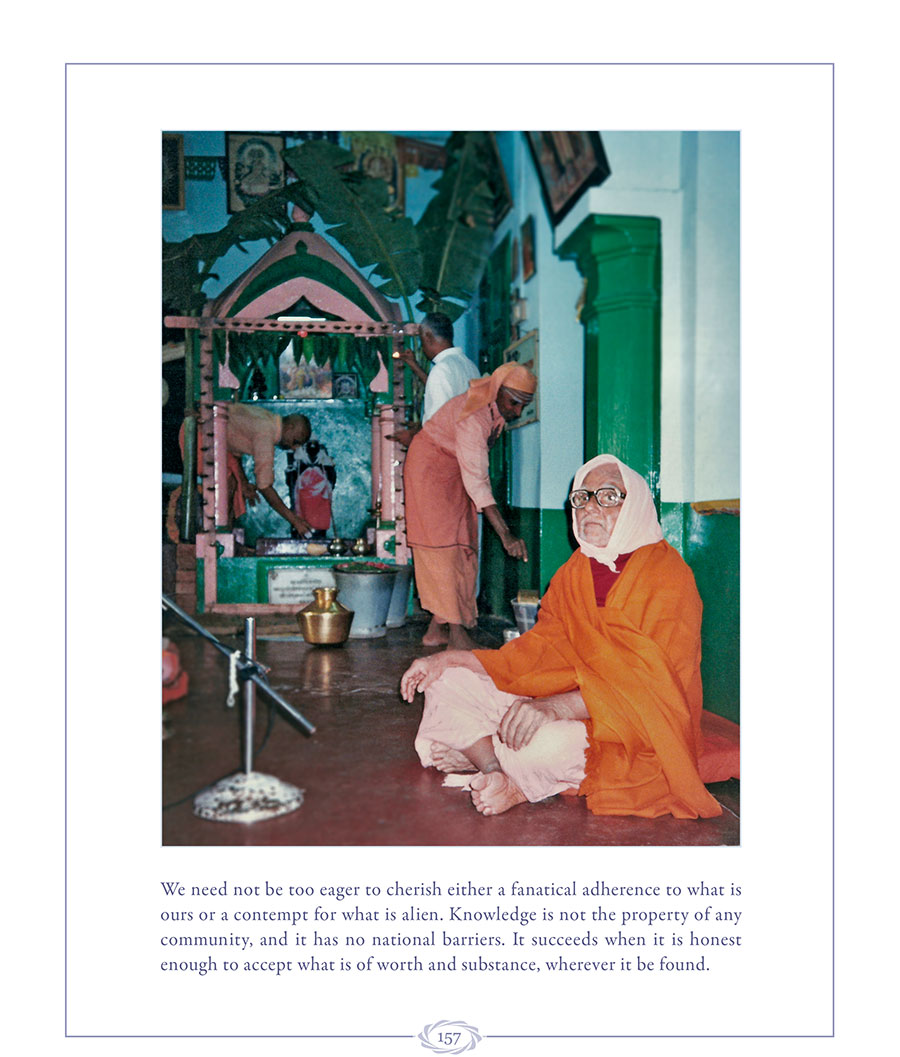Commentary on the Bhagavadgita : 49-3. - Swami Krishnananda.
======================================================================
=======================================================================
Tuesday, September 13, 2022. 06:30.
Discourse 49: The Eighteenth Chapter Continues – Types of Understanding, Determination and Happiness-3.
========================================================================
This is briefly some recapitulation of the characteristics of three types of actions done by three kinds of people—sattvic, rajasic and tamasic. This subject has been dealt with in more detail in the Third and the Fourth Chapters, and here it is only a summing up, a simhavalokanam. Simhavalokanam means going on, going on, and then looking back—like a lion. A lion goes on walking, and then after some time it turns to see what is behind. That kind of looking back is called summing up, recapitulation, simhavalokanam.
Now the buddhi, or the intellect, is discussed. Three qualities of the intellect are mentioned here—three types of intellect, understanding.
Buddher bhedaṁ dhṛteś caiva guṇatas trividhaṁ śṛṇu, procyamānam aśeṣeṇa pṛthaktvena dhanañjaya (18.29):
“Hey Arjuna, listen to the characteristics of understanding, the characteristics of determination, which I shall now touch upon briefly.”
Pravṛttiṁ ca nivṛttiṁ ca kāryākārye bhayābhaye, bandhaṁ mokṣaṁ ca yā vetti buddhiḥ sā pārtha sāttvikī (18.30):
Sattvic understanding, or intellection, is that which knows what is to be done and what is not to be done under a given condition, what is proper and what is not proper. Place, time and circumstance condition the undertaking of any work to determine which work may be suitable at a particular moment and which work may not be suitable at that moment. That which may be fitting in this particular spot may not be suitable at another place, and that which is fitting under conditions prevailing now may not be fitting under conditions prevailing in a different manner altogether or in some other place.
Therefore, everyone should understand this peculiar tantalising character of the method of choosing what is proper and what is improper. One cannot easily know what is good and bad. The goodness and the badness of an undertaking is not merely an ethical or a moral question. It is a philosophical and metaphysical issue based finally on the very purpose of existence itself. Only a well-baked philosopher can have some insight into what is finally good and what is not. By reading a book or a code of law, or a Smriti such as the Manu or the Yajnavalkya Smritis, one may know something of the nature of goodness and badness under specific conditions, but under what condition which kind of actions are to be performed cannot be catalogued in a book. We have to decide for ourselves what criteria we will hold in judging what is proper and improper. This is a crucial question before us, and the judgment in this regard should be based, finally, on the ultimate purpose of life. That is why one has to be very intelligent in choosing any course of action. Such a person is sattvic who knows what is proper and what is improper, what is good and what is bad, what is to be done and what is not to be done, what is a cause of bondage and what is going to be liberating. Only such a person can be really intelligent, and that understanding can be regarded as sattvic in its nature: sa buddhih partha sattviki.
*****
To be continued ....
=========================================================================









Comments
Post a Comment